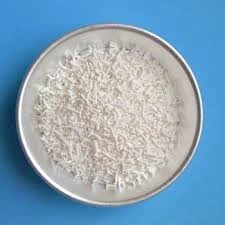
Thiamine Mononitrate as a Food Additive and Its Health Benefits
Thiamine Mononitrate An Essential Food Additive
Thiamine, also known as vitamin B1, plays a crucial role in maintaining overall health. It is essential for the metabolism of carbohydrates, proteins, and fats, helping our bodies convert food into energy. Thiamine monocitrate, a form of this vitamin, is commonly used as a food additive, appreciated for its nutritional benefits and functional properties in various food products. This article delves into the significance of thiamine mononitrate as a food additive, its benefits, applications, and health implications.
What is Thiamine Mononitrate?
Thiamine mononitrate is a nitrate salt of thiamine, which makes it more stable and suitable for use in food products. Unlike other forms of thiamine, thiamine mononitrate is less susceptible to degradation, particularly in highly acidic conditions. Because of this stability, it is often preferred by food manufacturers looking to fortify their products with this vital nutrient. Thiamine plays a fundamental role in the functioning of the nervous system and is essential for numerous cellular processes, making it critical to include in the human diet.
Nutritional Benefits
The inclusion of thiamine mononitrate in food products brings numerous benefits, primarily its role in preventing thiamine deficiency. Thiamine deficiency can lead to severe health issues, such as beriberi, characterized by symptoms like weakness, fatigue, and neurological disorders. It is particularly prevalent in populations with limited access to a varied diet or those consuming large amounts of refined carbohydrates, which often lack this essential nutrient. By adding thiamine mononitrate to products like bread, cereals, and snacks, manufacturers help ensure that consumers receive adequate amounts of this vitamin, contributing to better overall health.
thiamine mononitrate food additive

Applications in Food Products
Thiamine mononitrate is widely used in a variety of food products. Its stable nature allows it to be incorporated into baked goods, cereals, and enriched flours, where it can enhance nutritional content without significantly altering taste or texture. In the beverage industry, it is often found in energy drinks and nutritional supplements aimed at promoting healthy metabolism and energy levels. Additionally, thiamine mononitrate serves as a color stabilizer and improves the sensory properties of certain processed foods.
Health Implications
Incorporating thiamine mononitrate into the diet can have positive health implications, particularly in populations at risk of deficiency. For instance, people suffering from alcohol dependence are frequently at risk of thiamine deficiency due to malabsorption and poor dietary intake. Supplementation through fortified foods can help mitigate these health risks. Moreover, the benefits of thiamine extend beyond preventing deficiency. Adequate thiamine intake has been linked to improved cognitive function, better mood regulation, and enhanced cardiovascular health, thus making it an important component of a balanced diet.
Conclusion
In summary, thiamine mononitrate is an essential food additive that offers significant nutritional advantages. Its stability, ease of incorporation into a wide variety of food products, and ability to combat thiamine deficiency make it a valuable asset for food manufacturers and consumers alike. As we continue to understand the importance of micronutrients in our diets, the role of thiamine mononitrate in promoting health and well-being cannot be overstated. By making informed choices about the foods we consume, we can ensure that we meet our nutritional needs and foster a healthier future.
-
The Safety Challenges of Ammonium Nitrate FertilizerNewsJun.26,2025
-
The Critical Role of Mining ChemicalsNewsJun.26,2025
-
Shelf Life of Glacial Acetic Acid Food GradeNewsJun.26,2025
-
Enhancing PVC Longevity with 1,2,3-Benzotriazole InnovationsNewsJun.26,2025
-
China’s Dominance in Food Additive ProductionNewsJun.26,2025
-
Can Aluminum Hydroxide Replace More Toxic Alternatives?NewsJun.26,2025
-
PE and PP Plastics with Benzotriazole AdditivesNewsJun.12,2025
Hebei Tenger Chemical Technology Co., Ltd. focuses on the chemical industry and is committed to the export service of chemical raw materials.
-

view more DiethanolisopropanolamineIn the ever-growing field of chemical solutions, diethanolisopropanolamine (DEIPA) stands out as a versatile and important compound. Due to its unique chemical structure and properties, DEIPA is of interest to various industries including construction, personal care, and agriculture. -

view more TriisopropanolamineTriisopropanolamine (TIPA) alkanol amine substance, is a kind of alcohol amine compound with amino and alcohol hydroxyl, and because of its molecules contains both amino and hydroxyl. -

view more Tetramethyl Thiuram DisulfideTetramethyl thiuram disulfide, also known as TMTD, is a white to light-yellow powder with a distinct sulfur-like odor. It is soluble in organic solvents such as benzene, acetone, and ethyl acetate, making it highly versatile for use in different formulations. TMTD is known for its excellent vulcanization acceleration properties, which makes it a key ingredient in the production of rubber products. Additionally, it acts as an effective fungicide and bactericide, making it valuable in agricultural applications. Its high purity and stability ensure consistent performance, making it a preferred choice for manufacturers across various industries.











